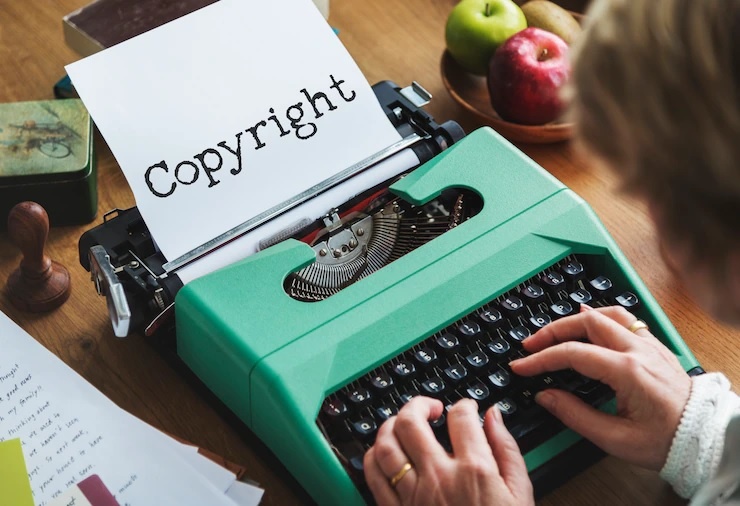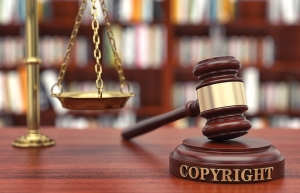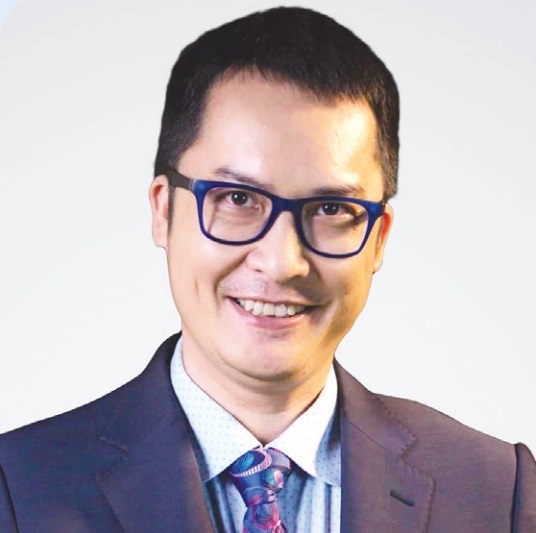Copyright cases rise in face of integration
Earlier this year, renowned Vietnamese animation studio Sconnect was the target of a lawsuit by US-based Entertainment One (EO), in which Sconnect’s Wolfoo franchise was sued for allegedly breaching EO’s Peppa Pig character set. Prior to the lawsuit, Wolfoo, a popular multi-language YouTube series based on a family of wolves, gained Sconnect international recognition along with a burgeoning merchandise business.
 |
| Copyright cases rise in face of integration, illustration photo/ freepik.com |
The Court of Moscow in Russia on August 3 officially terminated the civil proceedings of the lawsuit, affirming that no breach of intellectual property rights has been linked to Sconnect’s Wolfoo character set against EO’s Peppa Pig character.
However, the quickly-resolved lawsuit has nevertheless caused negative impacts on Sconnect’s reputation and business activities in the content creation industry. Talking with VIR, Sconnect’s head of Legal Pham Van Anh shared that the company had carried out thorough product and market research prior to entering the US market. “In the international playground, it often happens that competitors may deliberately rely on similarities to initiate copyright infringement lawsuits. However, it is within most countries’ laws that no exclusive protection is given to a certain creative style, idea, or opinion, and creators will have to follow the procedures prescribed by the laws of each country to protect their legitimate interests.”
Sconnect’s case is not the first dispute from overseas firms targeting Vietnamese creators. In February 2021, a popular video by Vietnamese pop singer Son Tung MTP was taken off YouTube following a report submitted by Producer CG, a UK-based music creator. To avoid publicity, the singer quickly resolved the issue, even though details were not made clear at the time.
Earlier, Min, another public figure in music, ran into similar issues.
Even though both singers were able to quickly recover their deleted videos, certain reputational and financial damages were suffered.
“Everyone has the right to make allegations, however, the court’s decision has to be based on documents and evidence,” Pham Duy Khuong, managing director of ASL Law, assessed. “In order to conclude on a copyright infringement, a technical and professional committee would need to be consulted, who will then decide whether a certain artwork is a derivative work or the portion used in relation to the copyrighted work has a substantial resemblance.”
Effective IP laws require creators and businesses to have the substantial legal knowledge to protect their own intellectual property (IP). According to Khuong, as the digital economy and e-commerce booms, many small- and medium-sized businesses from Vietnam are making big bucks from derivative products which are inspired by public figures. There is also an upward trajectory of Vietnamese enterprises contending with allegations of copyright infringement on international e-commerce sites. These issues are causing the international community to be on high alert for copyright-violated artworks, and somewhat creating a disadvantage for genuinely creative products.
According to the National Office of IP, in 2020 and 2021 there were over 65,000 IP protection applications in Vietnam. However, Luong Minh Huan, director of the Enterprise Development Institute under the Vietnam Chamber of Commerce and Industry, assessed that considering the 860,000 enterprises operating in the market, the number of applications granted is still very modest.
“In the Industry 4.0 era and deep global integration, IP protection becomes even more complicated, with technology amplifying the outstanding issues that businesses have to face,” Huan said. “So while it is now easier for businesses to succeed, it’s also easier for them to fail if they lack careful preparation in terms of both physical and mental resources.”
Van Anh at Sconnect said groups must register for protection of its own IP rights. “Creators need to apply as soon as possible, and register in each country the products will appear to ensure legal coverage.”
| Nguyen Thanh Son, Communications expert and venture capitalist
The Law on Intellectual Property, in theory, was created to provide a legal framework for creators, investors, and distributors to resolve disputes and to encourage diverse forms of expression, giving them the protection and profit they deserve with their products. Unfortunately, in practice, this goal, from time to time, is abused to put pressure on emerging innovative brands. And oftentimes, creators will have to accept and sacrifice their brainchild under the pressure of the big players, even with unfounded accusations. In 2020, Hugo Boss threatened to sue an art teacher for using “Be Boss, Be Kind”. Between 2019 and 2021, Apple filed over 200 claims of copyright infringement, sometimes just because other logos featured an apple. There are also typical “backward lawsuits”, like in the case of Anheuser-Busch suing the father of the Budweiser brand to gain the right to trade this brand in the US and other markets. In the digital age, with the rise of user-generated content, these copyright issues continue to heat up. While it is already difficult for young Vietnamese or local startups in the field of content creation to have products that are attractive beyond borders, it is another struggle to ensure that such content creators fully understand the strict rules and flexible applications of copyright. Therefore, more often than not, copyright issues are brought up by the big players as a kind of “boggart” to scare the creators and their new products. This basically stifles the desire to be creative, because it is sometimes hard to draw the line between inspiration and plagiarism, especially when you do not have enough money or time in your hands to protect your spiritual child. In order to pave the way for Vietnamese creativity to develop, especially so that Vietnam’s creative products can be on par with those from developed countries, creators need to understand their rights and obligations, and there needs to be flexibility and mutual cooperation between creators and products’ influencers. The relationship between creators, if it is true that each generation is inspired by the predecessors, should be for mutual development and in support of diversified content, and should not be a one-way bully to ensure the creative monopoly. |
*--*--*
| According to the 2022 International IP Index 2022 by the US Chamber of Commerce, Vietnam ranks 42 out of 55 countries included in the report. This year, the Ministry of Culture, Sports, and Tourism has made significant progress in integration with the international IP community. Vietnam become a member of two World Intellectual Property Organization (WIPO) internet treaties: the WIPO Copyright Treaty in February, and the WIPO Performances and Phonograms Treaty in July. |
 | Conforming to treaty via Law on IP In the last few years, Vietnam has signed a certain number of international trade agreements which require Vietnam to accede to or approve the WIPO Copyright Treaty (WCT) within a prescribed time period. Partner Nguyen Thi Hong Anh and junior associate Vu Hoang Ha Thu of Indochine Counsel take a look at amendments and supplements made in the Law on Intellectual Property in June. |
What the stars mean:
★ Poor ★ ★ Promising ★★★ Good ★★★★ Very good ★★★★★ Exceptional
Themes: Digital Transformation
- Ericsson and Viettel to accelerate autonomous network development
- PM sets five key tasks to accelerate sci-tech development
- Ho Chi Minh City launches plan for innovation and digital transformation
- Dassault Systèmes and Nvidia to build platform powering virtual twins
- Sci-tech sector sees January revenue growth of 23 per cent
Related Contents
Latest News
More News
- Businesses bouncing back after turbulent year (February 27, 2026 | 16:42)
- PM outlines new tasks for healthcare sector (February 25, 2026 | 16:00)
- Ho Chi Minh City launches plan for innovation and digital transformation (February 25, 2026 | 09:00)
- Vietnam sets ambitious dairy growth targets (February 24, 2026 | 18:00)
- Masan Consumer names new deputy CEO to drive foods and beverages growth (February 23, 2026 | 20:52)
- Myriad risks ahead, but ones Vietnam can confront (February 20, 2026 | 15:02)
- Vietnam making the leap into AI and semiconductors (February 20, 2026 | 09:37)
- Funding must be activated for semiconductor success (February 20, 2026 | 09:20)
- Resilience as new benchmark for smarter infrastructure (February 19, 2026 | 20:35)
- A golden time to shine within ASEAN (February 19, 2026 | 20:22)


 Tag:
Tag:



















 Mobile Version
Mobile Version